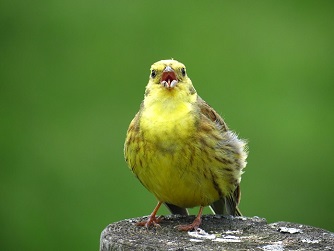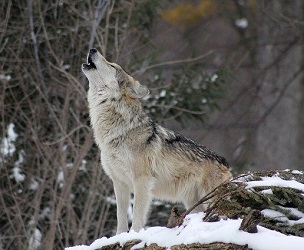Song of Songs
Music · Nature soundsNotating Nature
COMPOSER SHARES THE WONDERS OF NATURE'S OWN SYMPHONIES


As a bit of fun during lockdown, the French-German composer Alexander Liebermann set up a series of 'ear training' challenges by transcribing sounds of the animal kingdom into sheet music to post on-line. Initially intrigued by a video of a dog howling whilst 'playing the piano', he became curious about other animals and the sounds they produce. After stumbling across a film of a male humpback whale whose song "was so beautiful, it immediately gave me the chills", he immediately transcribed it and posted it on social media.
Ever since then, Alexander's been publishing the score of the song of a different creature each month, whilst also writing a little bit about the species history as a way of raising awareness "about the marvels and challenges around us".
From different varieties of birds to dolphins to wolves, in his last post before the new year and using the song of a nightingale, at different speeds, as an example he wrote, "When working with recordings of animal calls, I often slow down sections of the audio file to ease the transcription process. However, contrary to what one might think, slowing down the audio track does not always make it easier. In fact, it is often more complex to transcribe this way.
In slow motion, previously imperceptible notes become audible, and many rhythms believed to be explicit turn out to be devious. In other words, slowing down a recording is like opening the door to Narnia and revealing a hitherto unknown world."
Whilst Alexander says there always seems to have been a correlation between animals and music and cites other composers and musicians who have drawn their inspiration from animals and birds, he also says that notating the sounds of animals is not new either. Alluding to the English composer, William Gardiner's book 'The Music of Nature' published in 1832 he says, "You can find his transcriptions of cows, hens, sparrows and many other animals in glorious crotchets and quavers!" However, as Alexander doesn't add notes and harmonies he insists his aesthetic is very different from that of a composer. "My aim is rather to show the songs in their purest form, without a creative enhancement.'" he says.
You can see what he means by enjoying a few below:-